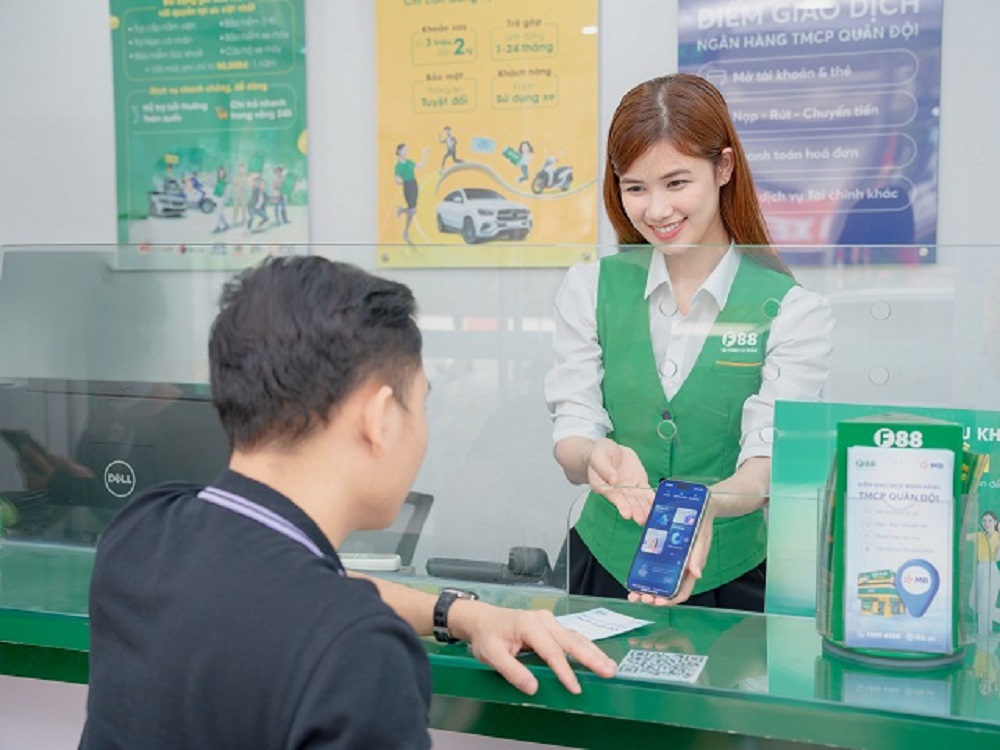“Turning Point” for Alternative Finance
The Law on Digital Technology Industry 2025 and Decree 94/2025/ND-CP on the regulatory sandbox in the banking sector are the two "turning points" of the alternative finance market in Vietnam.

F88, Nguoibanvang, Vietmoney, Camdonhanh, T99, and other newer pawnshops are growing rapidly, as seen by the 53.3% CAGR of outstanding loans for the 2019–2024 timeframe.
Moving toward the issuance of an alternative finance decree will be a crucial step in the long run to support the sustainable development of this industry.
Policy push
A major step forward is the Law on Digital Technology Industry, which establishes a strong legislative framework to foster innovation, boost competitiveness, and advance Vietnam's digital economy. One of the key concepts of the International Finance Centers in Da Nang and Ho Chi Minh City, the piloting of digital asset exchanges towards decentralized finance (Defi), would not be feasible without this law.
With the official implementation of a regulatory sandbox for Fintech solutions in the banking industry, Decree 94/2025/ND-CP represents a significant milestone.
Fintech has really been present in the Vietnamese market for a long time. However, we may recall a market reality example from many years prior to the COVID-19 time, when peer-to-peer lending (P2P) in Vietnam was extremely explosive due to a flood of investment in fintech firms, mostly from China and Russia, among many other sources. However, the lack of a legal framework has made it difficult to regulate this model's correct operation as a flexible capital connection platform, which has led to its transformation into a space for black credit to function. As a result, P2P lending has remained mostly "silent" up until now.
Positive outlook
An increasingly significant pillar is alternative finance. This industry in Vietnam includes models like buy now pay later (BNPL), payday loans, P2P lending, new-generation pawnshops, and, more recently, DeFi crowdfunding platform. According to FiinGroup, alternative financing has a compound annual growth rate (CAGR) of 36.8% from 2021 to 2023, which represents the actual demands of tens of millions of individuals without access to bank loans.
By the end of 2024, the size of Vietnam's alternative finance sector is expected to reach over VND200 trillion in outstanding loans, with pawnshops alone accounting for the bulk of this amount, or around USD8 billion, according to FiinGroup statistics. F88, Nguoibanvang, Vietmoney, Camdonhanh, T99, and other newer pawnshops are growing rapidly, as seen by the 53.3% CAGR of outstanding loans for the 2019–2024 timeframe.
According to Mr. Nguyen Huu Hieu, CEO of FiinGroup, wealth and demographic composition are key factors influencing alternative finance. Sixty percent of Vietnam's 56.5 million working-age population are informal laborers, who are less likely to obtain bank loans because they lack collateral and credit records. This is the market sector that P2P, BNPL, and pawn platforms aim to reach.
Furthermore, the evolution of fintech is altering the rules of this game. Credit evaluation may now be done using non-traditional data and customer behavior rather than only CIC thanks to the use of AI, Big Data, and eKYC. This approach makes it easier for low- and middle-income people to get loans and creates prospects for financial inclusion.
Which solution is promoted?
According to Dr. Nguyen Hoang Hiep, economist, an important "key" to the more efficient functioning of alternative finance providers is the early, swift, and efficient implementation of legislation. The alternative finance sector, for instance, is still awaiting specific decrees and circulars that will direct the application of the Law on Digital Technology Industry.
The State Bank of Vietnam, in accordance with Decree 94/2025/ND-CP, has shortly released registration guidelines for three crucial sectors, namely P2P lending, credit scoring, and financial data sharing using an open application programming interface (Open API). These are the fundamental solutions to create an inclusive financial environment that is more adaptable and open in the near future.
According to Deputy Governor of the State Bank of Vietnam Pham Tien Dung, implementing Project 06, there are currently more than 122 million individual and corporate customer information files (CIF) that have been compared and updated with biometric information via chip-embedded ID cards or the VNeID application. This is a very large, clean financial database, expected to promote quality credit—especially consumer credit when sharing data between banks, financial companies, and, according to Decree 94/2025/ND-CP, including piloted fintech companies.
From a business standpoint, Dr. Nguyen Hoang Hiep believes that the move to issue a separate decree for alternative finance will be a crucial step to help this market develop sustainably. This is because the implementation of sandboxes for new models like P2P lending, BNPL, and blockchain will create a regulatory sandbox, reduce risks, and support innovation. With the variety of alternative financial services available, it is crucial to note that connection is also expected to enable appropriate alternative loans for business households and SMEs. Because consumer loans are no longer the only emphasis of alternative finance.








